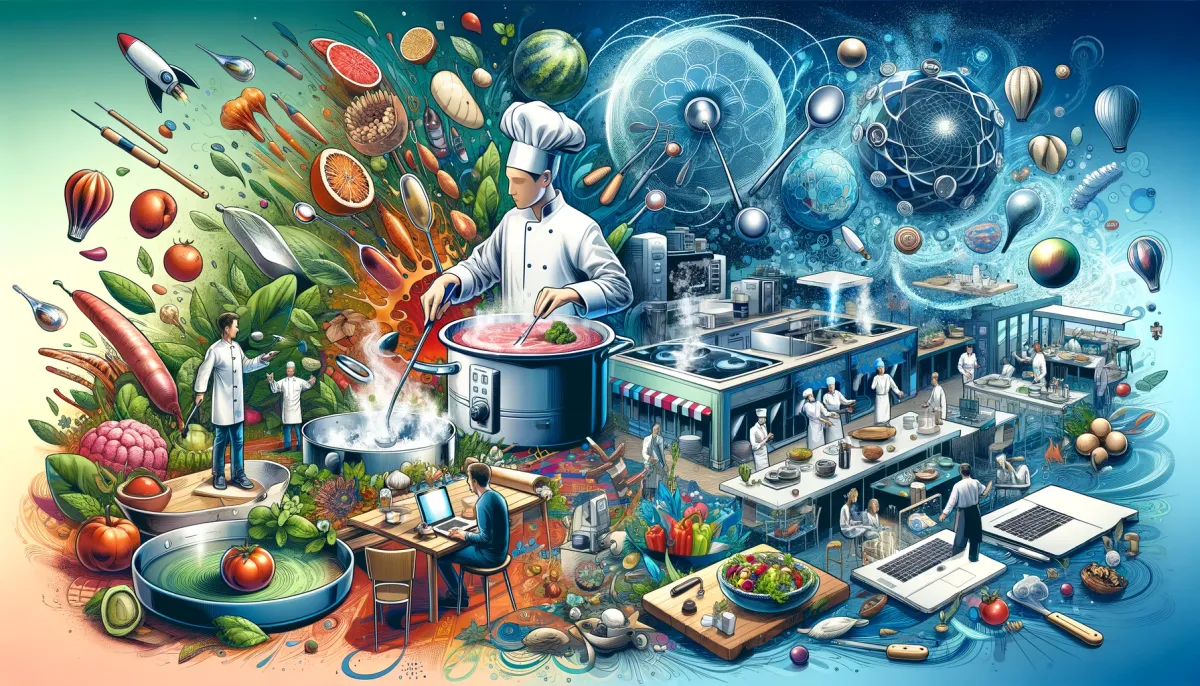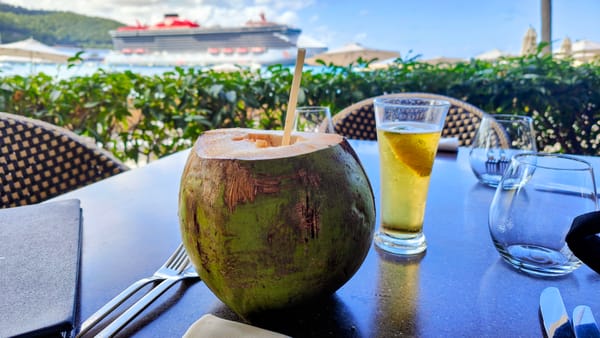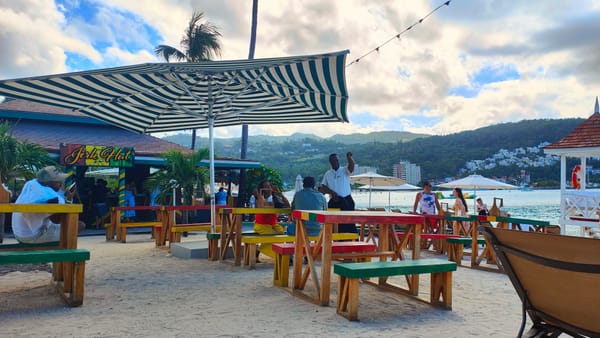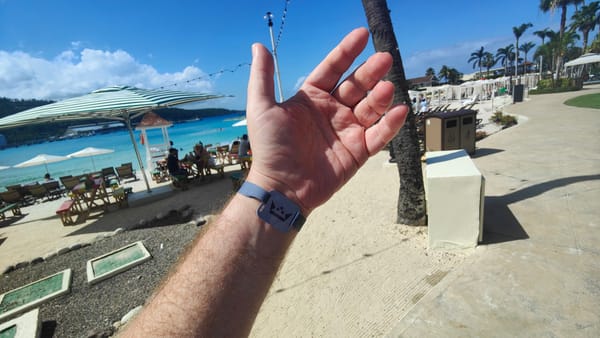The enduring legacy of eGullet

Today, I learned that my Wikipedia page will likely be deleted because the editors there feel I do not meet the criterion for being a notable person. In this day and age, that's probably a good thing.
In the back-and-forth discussion on Wikipedia, one of the editors noted that the site I co-founded in 2000, eGullet, was "a very big deal in the food world in the 2000s."
I agree. It was a big deal, and it is the one achievement I am particularly proud of, even some 24 years later. I was also recently asked to write about it for an internal discussion at a large corporation, and while I did not think about publishing it then, I thought now would be a good opportunity.
The creation of eGullet
During the late 1990s, online forums became popular platforms for discussing all kinds of topics. However, my colleague Steven Shaw (who passed in 2014) and I noticed a gap in spaces dedicated to food enthusiasts. Early forums lacked quality and depth, which made them unappealing to serious food lovers and professionals. To address this, we set out to create a platform to revolutionize online food discussion.
We aimed to build a diverse community where chefs, critics, and food lovers could engage in meaningful conversations. Our hard work created an online community, eGullet.org, that set new standards for quality and inclusivity in online food discussion. The platform facilitated groundbreaking discussions on insider techniques like sous vide cooking and supported ambitious projects, including conceptualizing innovative restaurants demonstrating the site’s tangible impact on the culinary world.
The site’s vision and mantra, "Read, Chew, Discuss," inspired anyone passionate about food to learn, share, and innovate.
The creative vision behind eGullet
We aimed to establish a leading online community for food enthusiasts and professionals. This required a multi-faceted approach combining technological innovation with a commitment to fostering an environment that catered to food enthusiasts from all backgrounds.
Technological and ideological foundation
In 2001, we set out to create a space to facilitate lively conversations while welcoming everyone, regardless of their technology or food knowledge. In a time before Facebook and smartphones, we recognized that our potential members had varying degrees of exposure to technology, so we prioritized ease of use in our platform's user experience.
As a part of our mission, we aimed to encourage discussion of emerging culinary techniques and trends. These conversations focused on sharing recipes and exploring the science, history, and culture behind culinary practices. By engaging with prominent figures in the food world, we intended to enhance our community's understanding and inspire them with fresh perspectives.
We aimed to design a system to support community growth without issues as more people joined the conversation and discussion threads multiplied, ensuring everyone could continue participating seamlessly.
Initially, our task was to develop and customize forum software to meet our functionality and scalability goals. We adopted Linux and open source software for the technology infrastructure; at the time, this was an unconventional but pivotal decision for reducing costs and facilitating rapid development. We used an early PHP-based forum system before partnering with a specialized forum hoster and developer—Invision Power Systems—ultimately allowing us to tailor the software to enhance user experience and support vibrant, meaningful discussions.
Ensuring sustainability
Our community needed a sustainable model to ensure its long-term growth. This model needed to uphold our core values and independence without relying on commercial interests that could compromise the authenticity of discussions. Our challenge was to strike a balance, allowing us to expand and support our activities while upholding our commitment to free and open exchange.
Expanding beyond discussion
In addition to the forum discussion, we offered educational initiatives and resources to improve culinary knowledge and skills for members at all levels, from home cooks to professionals. Our goal was to empower members with the knowledge and tools to explore and innovate in their culinary pursuits.
The creative journey
In establishing eGullet as the premier online food community, our actions were driven by a desire to innovate, engage, and support the individuals within our community and the broader culinary industry. Here is how we achieved this vision:
Cultivating a diverse and engaged community
The critical component of our strategy was building a community encompassing varied culinary interests and expertise. We extended invitations to food writers, chefs, and knowledgeable amateurs, encouraging them to share their insights. eGullet fostered an environment of respect and continuous learning by promoting high-quality content and ensuring consistent moderation.
Driving culinary innovation and engagement
eGullet became a forum for groundbreaking discussions, drawing culinary innovators such as Nathan Myhrvold, who openly shared his experience in creating the influential work Modernist Cuisine. His early participation enriched the forum's content and solidified eGullet's status as a trailblazer in exploring modern culinary techniques.
One pivotal area of discussion was sous vide cooking—a method then unknown to many and expensive, typically reserved for professional kitchens. The dialogue played a crucial role in demystifying this technique, contributing significantly to its accessibility and adoption by home cooks. This groundwork supported the emergence of companies like ANOVA, which developed affordable sous vide equipment, making this innovative cooking method accessible to a broader audience.
eGullet was a vibrant platform where professionals, including the late Anthony Bourdain, actively contributed. Following the publication of Kitchen Confidential, Bourdain's involvement offered the community invaluable insights, adding a layer of authenticity and direct engagement with the culinary world rarely found online.
Supporting the conceptualization of Alinea
A standout example of eGullet's impact is its role in developing Alinea, Chef Grant Achatz's Chicago-based restaurant that would go on to earn three Michelin stars. Achatz leveraged eGullet for everything from the architectural design to the experimental phase of dish development. His collaborative interactions with the community were instrumental in refining the innovative concepts defining Alinea.
Expanding our offerings
We launched the eGullet Culinary Institute to offer free online classes, democratizing culinary education. Features like RecipeGullet and the Daily Gullet served as platforms for sharing and discovery. Future projects such as eG Radio (podcasts) and expansion into multimedia content were planned to ensure that our community remained at the cutting edge of culinary discourse online.
Embracing a not-for-profit model
In 2005, we transitioned to a not-for-profit structure, a strategic move aimed at securing the platform's future while upholding our commitment to free access to information. This transition required meticulous planning, including obtaining 501(c)(3) status, which opened up new avenues for funding through donations and grants, aligning perfectly with our educational objectives.
eGullet's lasting impact
eGullet's transformation into a leading online culinary community sparked a revolution in discussing and appreciating culinary arts. With a global membership that included renowned chefs and food writers, we set new standards for quality and inclusivity, and the community's technological foresight and our commitment to education and innovation laid the groundwork for future advancements in the culinary field. Through engaging with culinary pioneers and supporting groundbreaking ventures, eGullet cemented its legacy as a pivotal force in the culinary arts online, inspiring a tradition of innovation and excellence.



